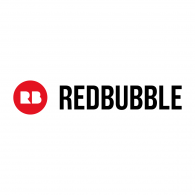Pursuing a career as a data entry clerk can be an excellent entry point into the professional realm, particularly for individuals looking for entry-level roles that offer potential for advancement. Although data entry may seem like a straightforward task, it requires a unique combination of qualifications and skills to ensure accuracy, efficiency, and productivity. This article examines the essential educational background, technical proficiencies, and soft skills required for individuals aspiring to become data entry clerks.
1. Educational Qualifications
Although data entry roles do not typically demand advanced degrees, employers often require the following educational background:
- High School Diploma or Equivalent: This fulfills the basic requirements for most data entry roles, demonstrating essential literacy and numeracy skills.
- Associate or Bachelor’s Degree (Optional): While a degree in fields such as business administration, information technology, or computer science is not mandatory, it can be beneficial, especially for specialized or higher-level positions.
2. Technical Skills
Proficiency with computers and various software tools is essential for a data entry clerk. Employers typically look for candidates who are comfortable using the following:
- Typing Proficiency: Accurate and fast typing speeds are critical. Many employers expect a typing speed of at least 40–60 words per minute (WPM), with high accuracy.
- Knowledge of Office Software: Familiarity with Microsoft Office Suite (Excel, Word, Outlook) or equivalent software is a must.
- Database Management Systems: Basic knowledge of tools like SAP, QuickBooks, or custom database software can be an asset.
- Spreadsheet and Data Management: Comfort with creating, editing, and formatting spreadsheets is often required.
- Basic Computer Literacy: Proficiency in navigating operating systems, file management, and troubleshooting minor technical issues.
3. Soft Skills
Success in data entry depends as much on interpersonal and organizational skills as on technical abilities. Key soft skills include:
- Attention to Detail: Ensuring accuracy when entering data is paramount to avoid errors that could impact business decisions.
- Time Management: The ability to prioritize tasks and meet deadlines efficiently.
- Communication Skills: Clear communication is necessary when coordinating with team members or reporting discrepancies.
- Problem-solving: Ability to identify and rectify errors in data or processes.
- Organization Skills: Managing large volumes of information and maintaining systematic records.
4. Certifications and Training
While not always required, certifications can boost your resume and demonstrate a commitment to the role:
- Typing Certification: Verifies your typing speed and accuracy.
- Microsoft Office Specialist (MOS): Certifies proficiency in Microsoft applications.
- Data Entry Specialist Certifications: Available through platforms like Coursera or LinkedIn Learning, covering specialized data entry skills.
- Training in Accounting or Finance: Useful for roles involving numerical data.
5. Relevant Work Experience
Entry-level data entry positions may not require prior experience, but demonstrating related skills can help:
- Internships or Part-Time Roles: Experience in administrative or clerical roles can provide relevant exposure.
- Freelance Work: Demonstrating freelance data entry experience on platforms like Upwork or Fiverr.
- Volunteer Experience: Nonprofit organizations often require data entry volunteers, which can help build your resume.
6. Physical and Mental Readiness
Data entry work demands focus and physical stamina, especially for long hours of repetitive tasks. Employers expect candidates to demonstrate:
- Hand-eye coordination: Essential for quick and accurate data input.
- Patience and Concentration: Critical for maintaining accuracy over extended periods.
- Health Awareness: Familiarity with ergonomic practices to prevent strain or fatigue.
7. Language and Writing Proficiency
In roles that require transcription or the management of sensitive information, proficiency in the working language and strong grammar skills are crucial. Additionally, having multilingual capabilities can offer a considerable advantage in multinational companies, enhancing communication and collaboration across diverse teams.
8. Industry-Specific Knowledge
Some data entry roles require familiarity with specific industries:
- Medical Data Entry: Knowledge of medical terminology and billing codes (e.g., ICD or CPT codes).
- Legal Data Entry: Understanding of legal documents and terminology.
- E-commerce Data Entry: Experience with product catalogs, inventory management, and pricing tools.
Final Thoughts
A career in data entry is achievable for those who have the right mix of education, technical skills, and soft skills. By consistently improving your typing speed, learning new software tools, and gaining industry-specific knowledge, you can stand out in this field. Furthermore, pursuing certifications and creating a portfolio of completed projects can open the door to more specialized and higher-paying opportunities.
“Data is the new oil, and accurate data entry is the foundation of informed decisions.”
FAQs
What are the basic qualifications for a data entry clerk?
A high school diploma and proficiency in typing are the minimum qualifications. Familiarity with office software and attention to detail are also essential.What typing speed is required for data entry jobs?
Most employers expect a typing speed of 40–60 WPM with high accuracy.Are certifications necessary for a data entry career?
While not mandatory, certifications like Microsoft Office Specialist or Typing Certification can boost your employability.Is prior experience required for entry-level data entry jobs?
Many roles are entry-level, but internships, freelance work, or volunteering can give you a competitive edge.What industries hire data entry clerks?
Data entry clerks are in demand in healthcare, legal services, finance, e-commerce, and education.What software tools should I learn for data entry?
Proficiency in Microsoft Excel, Word, and database management tools like QuickBooks or SAP is highly beneficial.Can I work remotely as a data entry clerk?
Yes, many companies and freelancing platforms offer remote data entry opportunities.
- Starting a career as a data entry clerk can be a valuable opportunity to develop essential skills in data management and accuracy. By obtaining relevant certifications, you can enhance your qualifications and increase your chances of securing a position in this field. Data entry roles are ideal for those who value precision and productivity. For more insights and resources to help you advance in your career, be sure to explore our blogs.
📌I appreciate your attention to this issue. Thank you for reading! Mastering the Freelance IT Blog. Mastering The Freelance IT Blog.






.png)











0 Comments